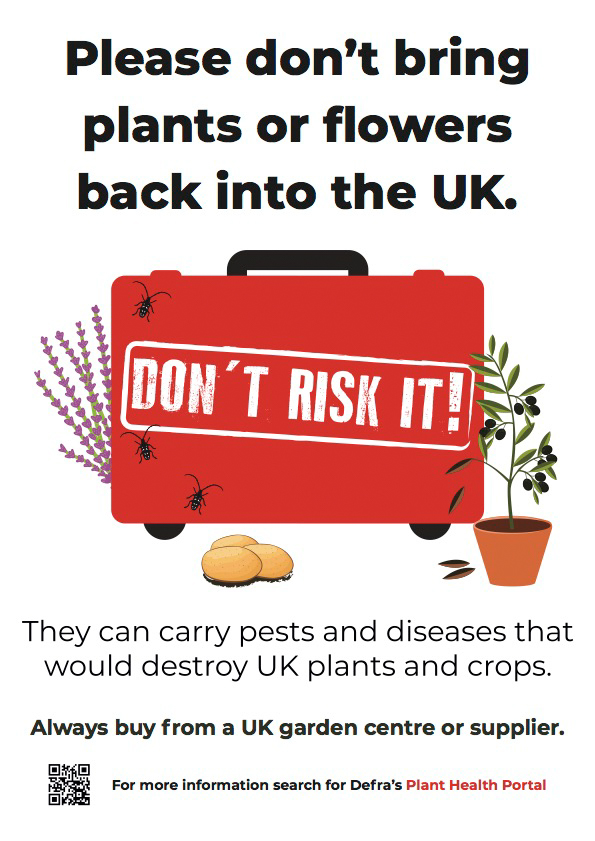DON'T RISK IT!
It’s that time of year when many of us are heading off on our holidays. Travelling abroad allows us to enjoy fascinating flora often leading to the temptation to bring a little souvenir home, whether that be a few seeds bought in a local market, or plant material found in the wild. However, as tempting as this may be, it can lead to pests and diseases being introduced to the UK.
Currently of significant concern, is the potential introduction of Xylella fastidiosa to the UK. Reported in Italy, France and Spain it is found in plants such as olives, rosemary and lavender. Xylella is a devastating bacterial disease, which effects plants xylem, resulting in restricted water movement and eventual death of the plant. Infected plants can either show no symptoms or symptoms like those displayed with other issues such as drought or frost, making it difficult to detect.
The Animal and Plant Health Agency (APHA) are working with the horticulture industry to develop rigorous measures to protect the UK from the introduction of pests and diseases. Schemes such as the plant passport scheme ensure traceability of plants through the supply chain and encourage responsible trading.
To further protect our borders and raise public awareness amongst those travelling abroad, the Department for Environment, Food and Rural Affairs (Defra) has launched the “Don’t Risk It” campaign highlighting the risks connected with bringing back cut flowers, fruit, vegetables and plant material from holiday destinations. Through the campaign, focusing on travel gateways such as airports, ports, train stations and travel companies, Defra will be asking everyone to enjoy the exotic plants and flowers they see on their holiday, but to only bring them back in memories or photographs.

For more information about UK Plant Health why not visit the UK Plant Health Information Portal at https://planthealthportal.defra.gov.uk/
